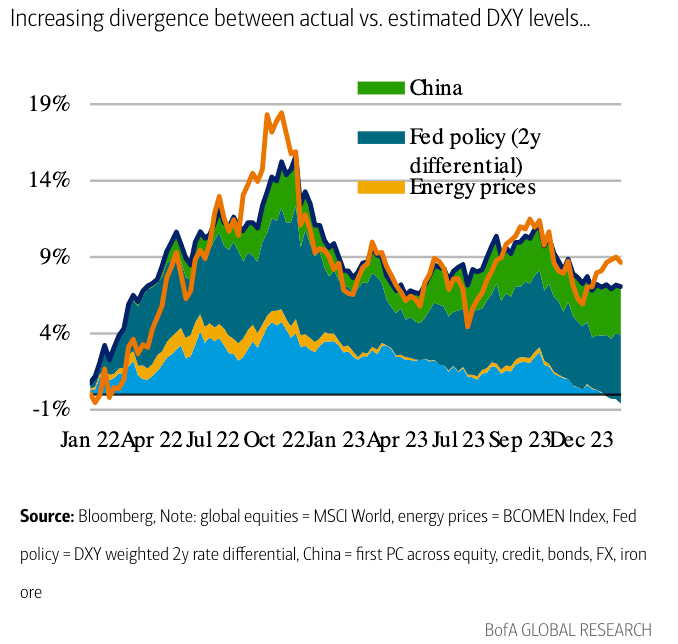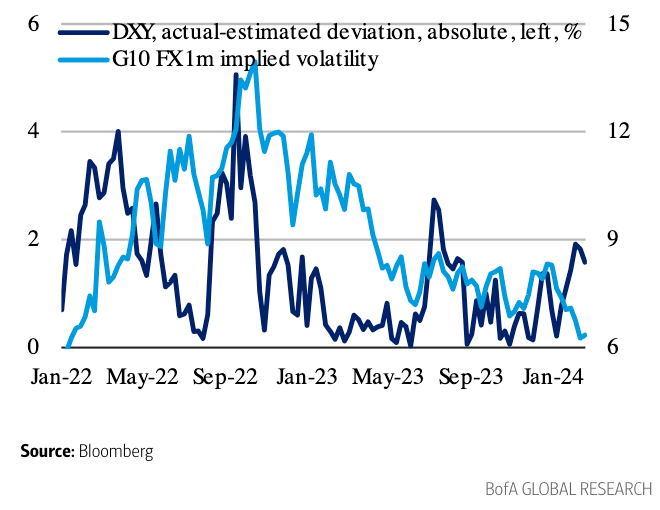Dollar-Yen Is Overshooting Warns BofA

Image © Adobe Stock
The Dollar is overshooting relative to fundamentals meaningfully, says Bank of America, warning that the overshoot is particularly acute against the Japanese Yen.
"The DXY dollar index has diverged more meaningfully from its key drivers. Fed repricing has supported the dollar but offset by robust equities and some improvement in China sentiment. While carry is supportive, we caution against buying USD at current levels, especially vs. JPY," says Adarsh Sinha, FX Strategist at BoFA's Merrill Lynch unit in Hong Kong.
In January, Bank of America argued the U.S. Dollar overshoot, relative to risk sentiment and rate differentials, was less dramatic than it first appeared.
"This is no longer the case with our DXY framework showing the gap between actual and estimated levels approaching divergences observed in July 2023 and October 2022," says Sinha.
Above: "DXY dollar index: 2022-to-date, actual vs. estimated" - Bank of America.
While there has been meaningful repricing of Fed rate cuts since January (markets now only see approximately 80bp of cuts in 2024), this was offset by robust equity performance and some improvement in China sentiment.
"This suggests caution against buying USD at current levels especially as the market may struggle to price in fewer cuts," says Sinha.
According to the analyst, buying USD around current levels looks particularly risky when considering chasing Dollar-Yen higher: "while we are structurally bullish, there is near-term downside risk from potential policy resistance from BoJ and MoF (USD/JPY may face policy resistance in spring 27 February 2024)."
Above: DXY actual-estimated divergence (absolute) vs. 1m vol. The divergence may eventually be associated with higher volatility, warns Bank of America.
The analysis from Bank of America finds signs of bottoming in China sentiment may cap the upside in USD.
"The larger-than-expected 5yr LPR cut signalled intent to strengthen support for the property sector. While this is not yet evident in new home sales, the LPR cut should help restore some housing confidence in the near term," says Sinha.
The PBoC has acknowledged that Fed rate cuts would provide room for further monetary easing by reducing FX pressure.
"This can amplify the impact of Fed policy on the USD, through its second-order effect on China policy and sentiment. Exhibit 7 shows this is already evident in the historically strong negative correlation between US rates and China sentiment," says Sinha.


